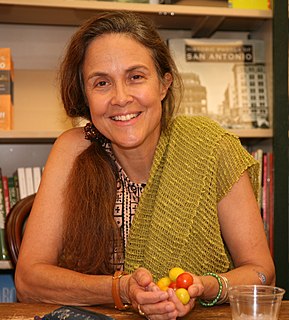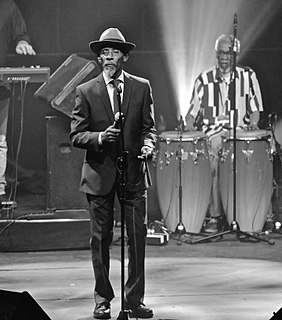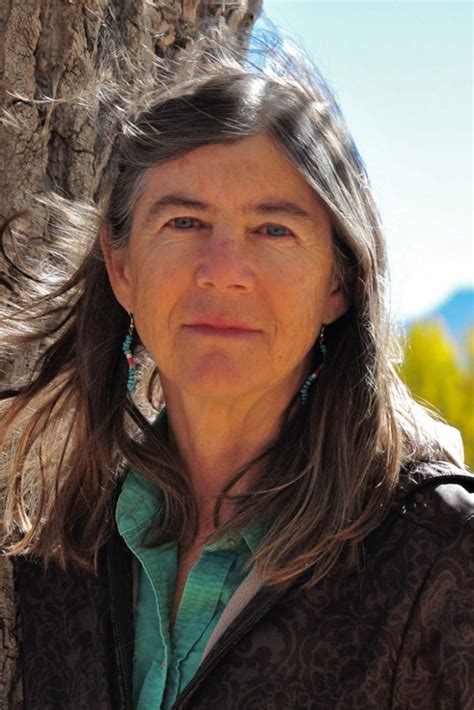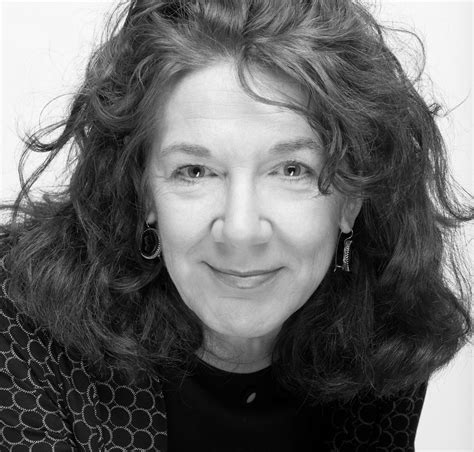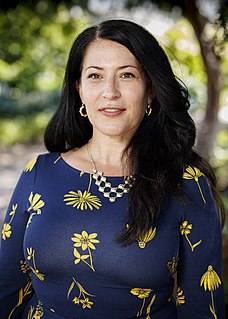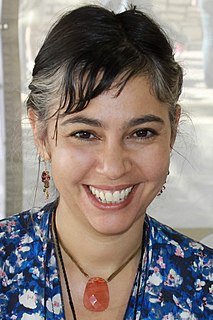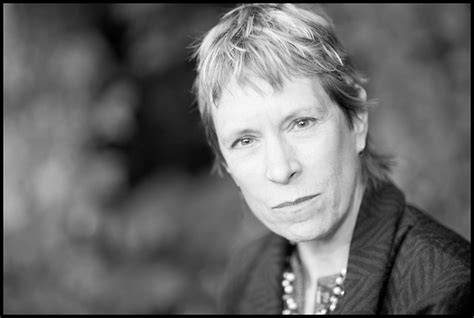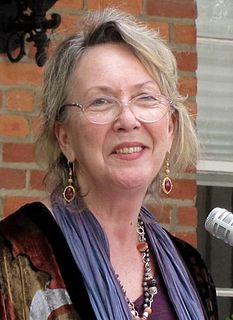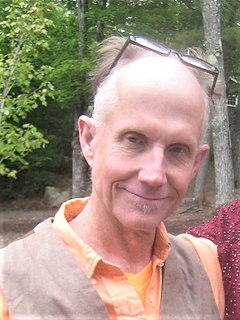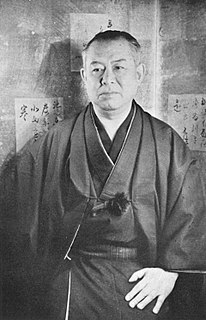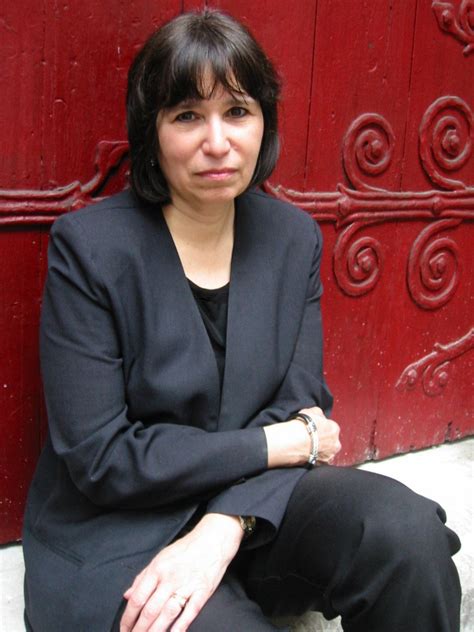Top 1200 Poems Quotes & Sayings - Page 3
Explore popular Poems quotes.
Last updated on September 19, 2024.
I've always believed that poetry must speak of realities as least as complicated as those spoken of in prose. I've read books of poems, even single poems, which are, for me, at least the equivalent of a short story or a novel. Martin Amis, in an interview with Saul Bellow in the early eighties, quotes Bellow asking, "Why not address 'the mysterious circumstance of being', say what it's like to be alive at this time, on this planet?" This has been and still is my ambition.
The judges who awarded the 1980 Commonwealth Poetry Prize to my first collection of poems, Crossing the Peninsula and Other Poems, cited with approval and with no apparent conscious irony my early poem, "No Alarms." The poem was composed probably sometime in 1974 or 1975, and it complained about the impossibility of writing poetry - of being a poet - under the conditions in which I was living then.
During the Gulf War, I remember two little third grade girls saying to me - after I read them some poems by writers in Iraq - 'You know, we never thought about there being children in Iraq before.' And I thought, 'Well those poems did their job, because now they'll think about everything a little bit differently.'
I know I'll keep writing poems. That's the constant. I don't know about novels. They're hard. It takes so much concentrated effort. When I'm writing a novel it's pretty much all I can do. I get bored. It takes months. Movies do the same thing. It's all-encompassing. It feels like I'm going to end up writing poems, short stories and screenplays.
I have to thank my mother for this. When I was a little boy she used to teach me poems. I would go in church and tell the poems in church for the Easter program, and again for Mother's Day and any occasion she felt would fit. I was very energetic with delivery at that time as a boy, so it stuck with me.
I wrote two poems about the 81 uprisings: Di Great Insohreckshan and Mekin Histri. I wrote those two poems from the perspective of those who had taken part in the Brixton riots. The tone of the poem is celebratory because I wanted to capture the mood of exhilaration felt by black people at the time.
I wrote a number of poems about Kah Tai lagoon, when Safeway was building that huge, ugly store down there where I used to love to watch the birds nest. That political poem, or environmental poem, was unsuccessful because Safeway built there anyway. And yet the poem has something to say today, as it did then. And I speak here only of my own poems. The agenda for every poet has to be different because most of us write from direct human experience in the world.
He was all emotion all the time, constantly talking about his feelings and his profound love for her. He was minutes from getting his first period. He wrote poems too. It's my personal belief that if men are writing poems, they're making up for something else like a big hair back, or one ball. Not that one ball is a bad thing. Especially since I don't know any females who are dying to their their hands on a set of balls. The way I see it, the less balls, the better.
[My poems] of course, it's symbolic, in the way that things in a poem can be - that is, pointing to something beyond its mere ordinary meaning, while also retaining all the qualities of that ordinary meaning. In other words, it's a bear, but it's also suggesting something else, just by virtue of the attention to it. But it's not "symbolic" in that way we are taught to think about things in poems.
I wrote two poems about the '81 uprisings: 'Di Great Insohreckshan' and 'Mekin Histri.' I wrote those two poems from the perspective of those who had taken part in the Brixton riots. The tone of the poem is celebratory because I wanted to capture the mood of exhilaration felt by black people at the time.
My poems are certainly in the lyric tradition, but perhaps a reader can tell me more precisely who I am as a poet. How can I be so old and not know? I have always been deeply grateful for the urge to write, the desire to create, that's certain. Writing has always been the way I make sense of life. Perhaps my poems define me, rather than the other way around. They do constantly surprise me.
When I first encountered the poems of Jon Woodward, I was stunned into the state that is my life's joy-I was in the presence of the inimitable. Uncanny Valley extends that experience-almost into another dimension. These apocalyptic, pixilated poems forge a mythology of our ravaged culture, one that might have been written in the future. If you want poetry to give you a persimmon on a plate, look elsewhere; if you want to know what happens when seven trees fall on the highway and the story is told by a stutterer, this is the book, and it could only have been written by Woodward.
Anna Journey, in her new book of poems, Vulgar Remedies, creates an alchemical self whose shimmering limbic / alembic lyrics distill the mysterious terrors of childhood, the dangerous passions of adults, into her own honey-dusk 'voodun': protective, purified to gold. Poetry is always a time machine: here we are invisible travelers to a bewitched past, a beautifully occluded future. These poems are erotic, vertiginous, revelatory, their dazzling lyric force reflecting profound hermetic life.
I have been writing. Even when I intend not to write, I find myself writing. I'm currently in a place where I should be putting together the fifth book, but then more poems are coming. It's exciting and somewhat daunting. You know how we are when a new book of poems is at last coming together - all frenzy, distraction, and bounty? It's as if I've turned into summer itself.
Natalie Lyalin is writing some of the best poems in the world. There is an evil in her gorgeous poem-hearts. She must have sold her heart to the devil to write like this—so beautiful, so funny and so strange. Her images stack and stack down the page without spilling, each line such a bombshell you'll start reading backward to the first line. These poems are like babies—they will pop out of trees.
Good poems do a lot of things at once. Often, by doing so, they encourage us to acknowledge mixed and incompatible feelings. Good poems, like good works of history, resist monocausal explanations for anything. There's not one reason why I am angry or excited or hopeful, when I feel those things. And there's not one reason why President Obama won two elections. And there's not one reason why Donald Trump won the most recent presidential election.
And the view was suddenly clear to me. The world opened out to its grim beyonds and I realized that, at forty, one must learn the rigors of acceptance. Capitalize it: Acceptance. I needed to accept what was put before me--be it a watery grave in Ireland's only natural fjord, or a return to the city and its grayer intensities, or a wordless exile in some steaming Cambodian swamp hole, or poems or no poems, or children or not, lovers or not, illness or otherwise, success or its absence. I would accept all that was put in my way, from here on through until I breathed my last.
I was walking every morning, and I'd take my iPod and paper and pen.?As I walked, I wrote a poem, and then I'd come home - and sometimes it's legible, sometimes not - I typed the poem up. So I have a new, yet to be published, collection of poems now. It's called Walker's Alphabet, and among other things, it is about walking. My most recent collection of poems in 2010, incidentally, was titled WALKING backwards.
So what rhyming poems do is they take all these nearby sound curves and remind you that they first existed that way in your brain. Before they meant something specific, they had a shape and a way of being said. And now, yes, gloom and broom are floating fifty miles away from each other in you mind because they refer to different notions, but they're cheek-by-jowl as far as your tongue is concerned. And that's what a poem does. Poems match sounds up the way you matched them when you were a tiny kid, using that detachable front phoneme.
Some of Mr. Gregory's poems have merely appeared in The New Yorker ; others are New Yorker poems: the inclusive topicality, the informed and casual smartness, the flat fashionable irony, meaningless because it proceeds from a frame of reference whose amorphous superiority is the most definite thing about it they are the trademark not simply of a magazine but of a class.
I know that one of the things that I really did to push myself was to write more formal poems, so I could feel like I was more of a master of language than I had been before. That was challenging and gratifying in so many ways. Then with these new poems, I've gone back to free verse, because it would be easy to paint myself into a corner with form. I saw myself becoming more opaque with the formal poems than I wanted to be. It took me a long time to work back into free verse again. That was a challenge in itself. You're always having to push yourself.
I want to yell about it most days and stop strangers in the street to share my outrage. But my mind is too serpentine to offer instant poem reactions. I can however stand back and examine the deeper ground, or at least that's what I hope my poems are doing. I believe contemplation can be an ethical act and literature can be a profound agent of cultural change, so I hope in some way my poems expand the conversations about environmental decline and social responsibility.
A decade ago, my poems were precious little boxes, small and claustrophobic, completely inward gazing. I didn't possess the command to speak beyond the self. Over the years, my poems have stretched out, grown broader and grander. The intervening years of living and aging - with their portions of tragedy, triumph, and shipwreck - have earned me both the authority and the necessity to write on a cosmic scale.
But Carroll's were more convoluted, and they struck me as funny in a new way: 1) Babies are illogical. 2) Nobody is despised who can manage a crocodile. 3) Illogical persons are despised. Therefore, babies cannot manage crocodiles. And: 1) No interesting poems are unpopular among people of real taste. 2) No modern poetry is free from affectation. 3) All of your poems are on the subject of soap bubbles. 4) No affected poetry is popular among people of taste. 5) Only a modern poem would be on the subject of soap bubbles. Therefore, all your poems are uninteresting.
As a sick kid, I always looked out the window. The objects of my observation were the sun, the seasons, the wind, crazy people, and my grandfather's death. During my long period of observation, I felt that something like poems were filling up my body. They were in some kind of state and condition that made them difficult to render into words. As a university student, I tried hard to write them in Korean. It was at that time that I foresaw my death and the world's death. I think my poems started at that time.
What does it mean to be a used white wife, a mother, a tragic girl writing poems? Sandra Simonds gets into these messy words and then tears them apart. Sometimes with the words of others. And sometimes with poems made from scratch. They aren't all bad, these words. But they aren't all good either. And that is where Mother was a Tragic Girl gets its power. You will at moments be laughing but then you will also at moments just as much be crying. If Antigone was alive and decided to write some poems about the nuclear family, she would write them like Sandra Simonds. These are tough.
I would read the Shel Silverstein poems, Dr. Seuss, and I noticed early on that poetry was something that just stuck in my head and I was replaying those rhymes and try to think of my own. In English, the only thing I wanted to do was poetry and all the other kids were like, "Oh, man. We have to write poems again?" and I would have a three-page long poem. I won a national poetry contest when I was in fourth grade for a poem called "Monster In My Closet.
Poems give us permission to be unsure, in ways we must be if we are ever to learn anything not already known. If you look with open eyes at your actual life, it's always going to be the kind of long division problem that doesn't work out perfectly evenly. Poems let you accept the multiplicity and complexity of the actual, they let us navigate the unnavigable, insoluble parts of our individual fates and shared existence.
Writing for me is an ongoing practice of facing and countering fears. And so, in that sense, I have always been responding to phobias. I am often most surprised by the writing that comes from facing fears that strike closest to home, poems that explore internalized phobias about gender identity, sexuality, and the body, poems that struggle with a question like do I deserve love?
In Advance of All Parting is a tough, unsentimental examination of marital grief. Musically elegant and inventive, understated and passionate, the poems give us a profound glimpse into how the events of a life can form a center of gravity that fixes the self in its force field. Theres a cold, truth-telling clarity about them that makes them as unsettling as they are beautiful. Ansie Baird has created a richly-drawn world in which this elemental drama plays out, and the result is vivid, startling poems in which pain has left its indelible tracks.
[Kenneth Koch] taught children in public schools in New York City to write poems and told them down worry about rhyming, don't worry about any of that stuff. You know, write a poem where you mention three colors and make it five lines - or he would just give them, you know, little strategies. And, man, they wrote some great poems.
A good many of my poems over the years have alluded to or taken on the political. Stevens has a line in one of his essays: "Reality exerts pressure on the imagination." Inevitably what is omnipresent in the culture exerts its pressure on our imaginations to respond to it, even if indirectly. But in this case the backdrop of 9/11, coincident with the breakup of a marriage, the finding of new love, some kind of personal cataclysm... all of those were forces informing the poems in some way.
Poem for Liu Ya-tzu I cannot forget how in Canton we drank tea and in Chungking went over our poems when leaves were yellowing. Thirty-one years ago and now we come back at last to the ancient capital Peking. In this season of falling flowers I read your beautiful poems. Be careful not to be torn inside. Open your vision to the world. Don't say that waters of Kumming Lake are too shallow. We can watch fish better here than in the Fuchun River in the south.
I've been writing poems since I was in the Navy - to Rosalynn. I found I could say things in poems that I never could in prose. Deeper, more personal things. I could write a poem about my mother that I could never tell my mother. Or feelings about being on a submarine that I would have been too embarrassed to share with fellow submariners.
The poems in Katherine Soniat's new collection, The Swing Girl, weave emotion's 'spray going farther than thought' with the 'bedrock things' of the trod-upon world. These poems eddy and pool in unpredictable and often surprising ways, much as the mind moves in its twilight state between waking and sleep. The fluidity of their cadence and the luminosity of their imagery carry the reader to the wellspring of poetry itself, that deep delight of which Robert Penn Warren spoke, whose source is, in Soniat's words, 'beauty on its way to being mystery.'
I've always been intrigued with the male characters in novels like 'Pride and Prejudice' such as Mr. Darcy, and this poem is part of a series of poems that explore desire and obsessions. The poems have been sitting in a drawer for a few years, so I decided to dust them off and work on them again since I have not written a new poem in more than three years. I'm not sure anything will become of the series, but at least it gives me something to work on in a period where I feel very uncreative.
The nobility of Teresa Leo's poems is that they are not disposed to hide from the dark-rather, they display a mind that tends toward obsession and brooding, that works against fatality like fingers at a knot. The firm, attentive mind on display and the lucid unfolding of the poems are the life instinct seeking and finding its way through again and again. Love and beauty are the argument, but they don't win easily. Bloom in Reverse works through elegy toward survival with moving persistence, both driven and compelling.
That being said, some of my favorite poets are extremely funny. The aforementioned Matt Rohrer, for instance. Mary Ruefle. James Tate might be the best example of someone who is systematically misread because he can be hilarious. In his poems, as in all great funny poems, the humor is one very appealing version of the surprise and associative movement that is at the heart of all poetry.
If we will admit time into our thoughts at all, the mythologies, those vestiges of ancient poems, wrecks of poems, so to speak, the world's inheritance,... these are the materials and hints for a history of the rise and progress of the race; how, from the condition of ants, it arrived at the condition of men, and arts were gradually invented. Let a thousand surmises shed some light on this story.
In my own writing, I've mostly abandoned end-rhyme, but wordplay is still a huge part of my process. I've written a series of mermaid poems in the last few years. The first one was called "The Straightforward Mermaid" which arose from my delight in that word combination. After that, I decided that future mermaid poems would have to be words ending in "d" or "t," which led to "The Deadbeat Mermaid," "The Morbid Mermaid" and so forth . . .
We had collaborated with Allen Ginsberg on one of his last projects just before he died in the spring of '97, a book called Illuminated Poems - it was Allen's poems and songs and I illustrated them. Or, I illuminated them with paintings and drawings that bounced off of them. You want the picture to relate to the text without it slavishly regurgitating it or merely illustrating it, because that's redundant. You want to show another angle of what the text is saying.
With ferocity and extraordinary craft, Lizzie Harris has made a book of poems that resonates far beyond the personal stories it tells. Stop Wanting reveals, in every lyric, its author's profound metaphorical gifts. In its ironies and intensities, it brings to mind a writer like the young Sylvia Plath, though what is startling about Harris' s work is the way it combines those gifts with a muted, deft self-awareness. Most of all, these are wonderfully shaped, powerful, and surprising poems-a startling debut.
The ancients waited for cherry blossoms, grieved when they were gone, and lamented their passing in countless poems. How very ordinary the poems had seemed to Sachiko when she read them as a girl, but now she knew, as well as one could know, that grieving over fallen cherry blossoms was more than a fad or convention.
Too many poets write poems which are only difficult on the surface, difficult because the dramatic situation is easily misunderstood. It's not difficult to write poems that are misunderstood. A drunk, a three-year-old-they are easily misunderstood. What is difficult is being clear and mysterious at the same time. The dramatic situation needs to be as clear in a poem as it is in a piece of good journalism. The why is part of the mystery, but the who, what, where, and when should all be understood.
I believe it's impossible to write good poetry without reading. Reading poetry goes straight to my psyche and makes me want to write. I meet the muse in the poems of others and invite her to my poems. I see over and over again, in different ways, what is possible, how the perimeters of poetry are expanding and making way for new forms.
Emily Kendal Frey's The Grief Performance is a book that condenses a journey of finding and re-finding loss into beautiful packages. The packages are the poems and they sit shiny and new on every page of this fabulous and generous book. I want to go into the world that these poems create, just so that I can be given these terrifying presents again and again. I know you will, too. See you there.
Memory, faith, and the natural world as both witness to the cycle of human life and healer to a questioning heart are at the core of this lovely and lyrical collection of poems. The weather changes, people come and go from cities and towns, babies are born, grow up and depart from their parents’ arms, but still, the countryside and its rituals sustain the people and creatures who know how to read the signs of the seasons. In these pages, Laura Grace Weldon shares those signs with us; her poems are the fruit of a wonderful harvest.
Precise, graceful, and generous, the poems in SuperLoop, seem to be born out of a deep, careful attention and a profound compassion. Sometimes the quiet observer, sometimes the kid in the center of the messed-up carnival, these poems are the fireflies you’ve missed all winter, the longed-for return of the bees. Unaffected and inherently hopeful, Callihan’s work is as merciful as it is moving.
... woman is frequently praised as the more "creative" sex. She does not need to make poems, it is argued; she has no drive to make poems, because she is privileged to make babies. A pregnancy is as fulfilling as, say, Yeats' Sailing to Byzantium.... To call a child a poem may be a pretty metaphor, but it is a slur on the labor of art.
Keats's odes are among my favorite poems ever. As are Neruda's. So yes, I think my poems are odes, though I really just see those titles as ways of more or less orienting the poem. I've never thought about this until now, but I guess you could say that one effect of all the titles, their pervasiveness in the book, might be to once again, as so many other things do, put into question the meaning of the word "for," which I suppose is one of the great human questions: what is all this for? Why, and for whom, are we doing whatever we are doing?
It's difficult to talk about [W.S.] Merwin's poems, as it's hard to talk about a feeling or a smell. It is what it is, but so much so that it overwhelms both sense and the senses. I aspire to something about his work, that imbues his poems, though I'm not sure I could say what that is. A purity, maybe, the kind of purity that comes from being beaten, like steel.
Read poems to yourself in the middle of the night. Turn on a single lamp and read them while you're alone in an otherwise dark room or while someone else sleeps next to you. Read them when you're wide awake in the early morning, fully alert. Say them over to yourself in a place where silence reigns and the din of the culture — the constant buzzing noise that surrounds us — has momentarily stopped. These poems have come from a great distance to find you.



